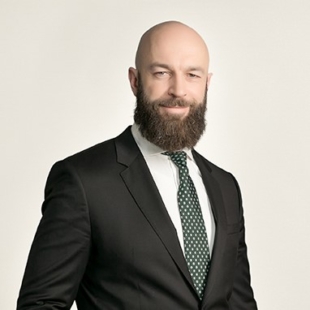The end of 2023 was rather eventful for the Belarusian intellectual property (IP) landscape. The Sorainen IP team is pleased to share the most recent news with you. Below, some interesting changes in IP legislation, a cross-border unfair competition dispute and a Supreme Court decision on the similarity between two trade marks are presented for your review.
Update on IP legislation
The Law of the Republic of Belarus No. 243-Z dated 9 January 2023 “On Amending Laws on Legal Protection of Intellectual Property” entered into force on 13 November 2023. We mentioned this law in our previous release (available here).
The Belarusian government also updated the procedure for paying remuneration and compensation for industrial property rights. This is provided by the Regulation of the Council of Ministers No. 769 dated 9 November 2023 (the Regulation), which entered into force on 13 November 2023 (available here in Russian). The Regulation introduces a new version of the relevant provision, which defines the conditions and procedure for payment, as well as minimum totals for:
– remuneration and compensation to employees for creating industrial property (such as invention, utility model, industrial design, integrated circuit layout design, plant variety);
– remuneration and compensation to employees for identifying and improving a plant variety;
– remuneration for using industrial property or know-how created by employees.
Among the main changes provided by the Regulation, the following should be highlighted:
- the list of cases when remuneration is to be paid for the use of industrial property or know-how created by employees was expanded;
This change is due to the introduction of a new term: “product manufactured using industrial property and/or know-how created by employees”. Starting from 13 November 2023, the remuneration in question is paid in the following cases:
- sale by the employer of a product applying industrial property created by employees or a product manufactured using industrial property and/or know-how created by employees;
- launch as part of in-house production of a product applying industrial property created by employees or a product manufactured using industrial property and/or know-how created by employees;
- conclusion of a licence agreement;
- conclusion of a know-how transfer agreement;
- conclusion of an assignment agreement.
- know-how is recognised as a separate independent entity for which use remuneration is paid;
In this regard, the Regulation defines know-how as information of any nature (production, technical, economic, organisational, etc.) related to the results of intellectual activity in scientific, scientific-technical or innovative fields, or to methods of professional activity which are not generally known or easily accessible to third parties, and have commercial value due to the quality of being unknown to third parties, and provides that the necessary measures are taken to ensure its confidentiality.
- the individuals who assist in creating and/or using industrial property created by employees are no longer covered by the corresponding regulation;
Therefore, the remuneration and compensation described above are paid only to authors (or co-authors).
Belarus trademark registration challenged in cross-border unfair competition dispute
The dispute at issue involved two companies registered in the Eurasian Economic Union (EAEU) (the Claimants) and one Belarusian company (BY Company), with the bone of contention being hookah bars operating under the brand “HOOKAH PLACE”. This case is significant as it underlines 1) the benefits enjoyed by trade mark owners; 2) the potential difficulties faced by third parties, including the original brand creator, in the “first-to-file” country; 3) the possibility of cross-border unfair competition disputes being considered before the Eurasian Economic Commission (EEC), the supranational regulatory body of the EAEU.
For reference: Armenia, Belarus, Kazakhstan, Kyrgyzstan and Russia are the members of the EAEU.
In July 2021, the Claimants, being the creators and organisers of the famous hookah chain HOOKAH PLACE, applied to the EEC with unfair competition claims against BY Company, which operates the hookah bar HOOKAHPLACE in Belarus. The Claimants considered that the Belarusian hookah bar HOOKAHPLACE creates the appearance of a connection with their well-known brand, so misleading consumers.
After an investigation lasting more than two years, in late November 2023 the EEC found that BY Company had violated the competition rules in the EAEU cross-border market: namely, it had committed actions aimed at misleading consumers (or counterparties) in relation to the service provider. The EEC fined the BY Company and its director.
The following EEC conclusions are worth mentioning in order to get to the bottom of this case:
- Why should the EEC consider the dispute?
The EEC is competent to consider unfair competition disputes in the cross-border market.
The following market was applicable to the matter: the market of services for granting rights to intellectual property to third parties, as well as services for organising entertainment (hookah bars) using a trademark (the Services).
A market is considered to be cross-border if its geographical boundaries cover the territories of two or more EAEU member states. The EEC established that a potential consumer may purchase the Services or has an opportunity to purchase the Services within the geographical boundaries of two EAEU member states (including Belarus).
- How was the brand HOOKAH PLACE created?
Claimants have been providing the Services since 2013 using a logo with the word mark “HOOKAH PLACE”, which individualises their hookah bars. They have also registered and used internet sites and accounts on social networks.
The logo ![]()
was created by a third party under an agreement with one of the Claimants. Elements of this logo were used by the Claimants when registering a series of trademarks united by the common verbal designation “HOOKAH PLACE”. These trademarks did not cover Belarus.
The Services are provided both by the Claimants alone and by their partners, based on separate agreements concluded in relation to hookah bars. The network of hookah bars using the verbal designation “HOOKAH PLACE” includes more than 200 bars in 20 countries.
- Which actions of BY Company constituted unfair competition?
A BY Company shareholder received information from the Claimants about the business model for opening hookah bars (prices of products, materials and hookah bars functioning). Having received this information, the BY Company shareholder stopped communicating with the Claimants.
BY Company opened two hookah bars in Belarus and advertised them, positioning the hookah bars owned by BY Company as part of the international network of hookah bars HOOKAH PLACE owned by the Claimants.
In 2018 BY Company registered the trademark “HOOKAHPLACE” in Belarus. Subsequently, BY Company tried to attack the Claimants’ partners with C&D letters and/or to entice them (persuading them to conclude an agreement with BY Company, not the Claimants). BY Company also registered a website to promote its activities on the internet.
- What benefits did BY Company receive?
The EEC established that BY Company, by registering the trade mark “HOOKAHPLACE” in Belarus, sought to take advantage of the reputation of the brand HOOKAH PLACE, which was obtained through the financial and production efforts of the Claimants. BY Company also sought to gain advantages in carrying out its activities in Belarus, and to push the Claimants and their partners out of the Belarusian market. Actions of this kind on the part of BY Company might have also led to losses and/or damage to the business reputation of the Claimants.
The full decision can be found in Russian at the link.
COFIX VS HOTFIX: Is There Any Similarity?
In late November 2023, a decision of the Intellectual Property Board of the Supreme Court of Belarus was published, pertaining to the dispute between the Israeli coffee chain COFIX (and the Belarusian coffee chain HOTFIX over their respective trade marks, also named COFIX and HOTFIX.
The dispute started in 2022 when COFIX filed an objection to the registration of the “HOTFIX” trade mark with the Belarusian patent authority’s Appeal Council. However, the Appeal Council did not find COFIX’s objection justified and confirmed the registration of the HOTFIX trade mark. COFIX appealed this decision to the Supreme Court of Belarus, which upheld the Appeal Council’s decision and kept the registration of the HOTFIX trade mark in force.
The findings of the Supreme Court regarding whether the “COFIX” and “HOTFIX” trade marks are similar to the extent of confusion are of particular interest in this dispute. Such similarity had to be established to invalidate the registration of “HOTFIX” trade mark.
According to Belarusian legislation, the similarity of verbal designations can be assessed in terms of phonetic, graphic and semantic aspects. Evaluation of the similarity of the designations is based on the overall impression they create.
The Supreme Court made the following conclusions when assessing the similarity of the designations:
- Phonetic similarity is absent
According to the Supreme Court, the phonetic perception of the compared designations when pronounced is generally different, due to the different syllables in the initial part of the respective words: the closed syllable “hot” and the open syllable “co”. The difference in the number of letters and sounds significantly affects the length and rhythm of the pronunciation.
- Graphic similarity is absent
According to the Supreme Court, the trademarks have distinct visual impressions considering the differences in the lettering of the first parts of the compared designations (“hot” and “co”), which the consumer observes first when reading the designations.
- Semantic similarity is absent
According to the Supreme Court, the “HOTFIX” designation has a definite semantic meaning when translated from English to Russian. The designation “COFIX” is an imagined term and is not a lexical unit in any language.
The full decision can be found in Russian at the link.
Our international Intellectual property team is at your disposal, should you need advice on any legal issues you are facing.
Contact our experts:

Maksim Salahub, partner

Marina Golovnitskaya, counsel


